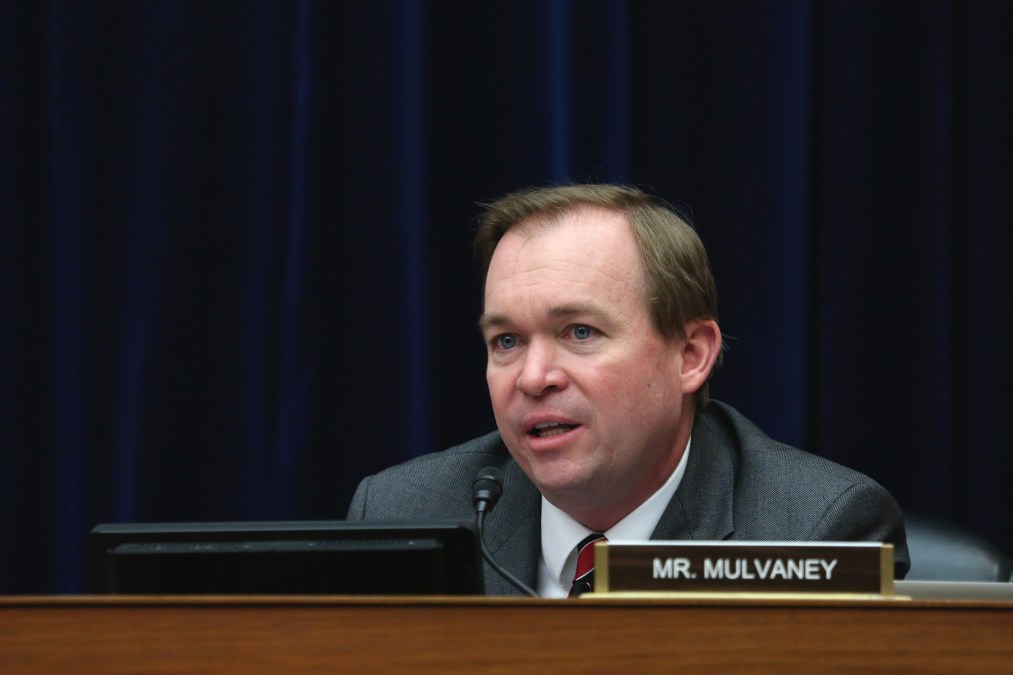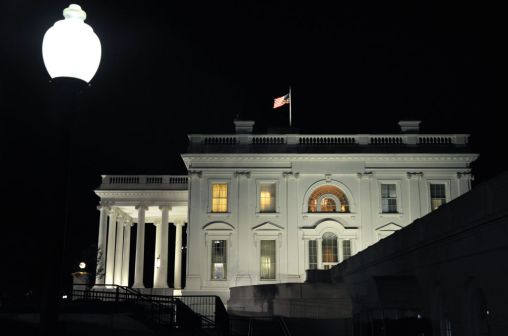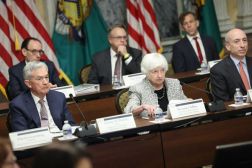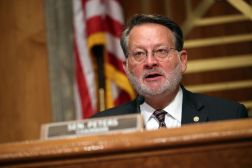Mulvaney: DATA Act crucial for sorting out federal spending

After two Senate confirmation hearings Tuesday, it was clear that President Donald Trump’s nominee to head the Office of Management and Budget has DATA Act implementation in mind.
Rep. Mick Mulvaney was peppered with questions Tuesday in two confirmation hearings on how he plans to advise Trump on reducing government spending. And while the South Carolina Republican offered ideas on everything from the defense budget to Social Security, he also made a point that structural changes like implementing the DATA Act are crucial to even fully understanding how federal money is being spent.
The 2014 law requires all agencies to report spending data in a standardized way, and some have reported to a congressional watchdog that they are facing challenges implementing it. The Government Accountability Office said recently some agencies are at greater risk of missing a May 2017 reporting deadline as a result.
During Mulvaney’s first confirmation hearing, before the Budget Committee, Republican Mike Enzi brought up the committee’s efforts to make the budget process more efficient. One of the problems it identified, Enzi said, is that various versions of the budget conflict with one another and make it difficult to track the money.
In particular, he mentioned the Defense Department, which consistently has trouble with audits.
“It goes deeper than that,” Mulvaney responded and noted the DATA Act could help.
“It’s almost as if the computer systems in the agencies are set up to not even allow the men and women working there to understand how the money is getting spent,” he said. “So you’re right, there could be a lot of structural reforms that we could put in place that OMB could drive in order to make it easier to understand how the government works.”
He added: “We’re living in an age of big data, and then here we are as the federal government and we probably have some of the best big data available anywhere, but we can’t use it because no one can share it or read it.”
Enzi’s concerns and Mulvaney’s responses echoed a December hearing by the House Oversight and Government Reform Subcommittee on Government Operations.
When asked during that hearing how the DATA Act might help identify potential Defense Department savings, an expert from the Government Accountability Office said the law would provide more transparency to where funds are being spent.
“Hopefully it’s also going to provide a vehicle for DOD management and other agencies to manage their funds and manage their programs, and make sure that as obligations are incurred that they are de-obligated in the proper time,” said Paula Rascona, GAO’s director of financial management and assurance. “Another benefit of the DATA Act should be through oversight on the part of not only DOD management but their auditors, and also the Congress. And this should give more visibility to how DOD is spending their money.”
[Read more: Looking for reasons to spur DATA Act implementation, lawmakers point to the Pentagon]
In Mulvaney’s second confirmation on Tuesday — before the Senate Homeland Security and Governmental Affairs Committee — the nominee was again asked how Congress can get better data on the federal budget.
When working through budget issues, “one of the hardest things to get in Washington, D.C., is the real number, for anything,” said panel member James Lankford, R-Okla. “How can you help us get the real number, coming from the White House and coming from your estimates, from OMB?”
Mulvaney responded: “Well the first step is obviously to get them myself, which is why the DATA Act is so important. It’s behind schedule as I understand, as we try to figure out a way to get data that we can actually all use.”
“One of the keys is to try to figure out a way to fix the system so that the data that we all have access to is the best possible number,” Mulvaney added. “And then simply be honest about those numbers with the president.”




